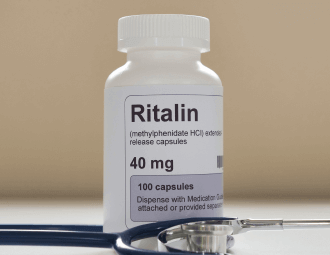Highlights
- ADHD and intelligence are independent factors. ADHD affects cognitive functioning, but it does not determine intelligence. People with ADHD can have a wide range of IQ scores, just like those without the condition.
- Executive functioning difficulties, distractibility, and inattention can make it harder for people with ADHD to perform well on IQ tests, potentially leading to lower scores that don’t accurately reflect their intelligence.
- People with both ADHD and a high IQ are more likely to mask their symptoms, which can delay diagnosis or lead to misdiagnosis, making it harder for them to receive appropriate support.
Attention deficit hyperactivity disorder (ADHD) can undoubtedly be difficult to live with. But it’s not all bad news — there are ways to use ADHD symptoms to your advantage as well. For example, people with ADHD are known to be
According to research, ADHD doesn’t directly lead to a higher intelligence quotient (IQ) — in other words, it doesn’t directly make you more intelligent. But ADHD and intelligence are also not mutually exclusive, meaning that many people with ADHD also have a high level of intelligence — and this can have effects on your experience with ADHD.
Here, we’ll review the correlation between ADHD and IQ.
Understanding ADHD
ADHD is a common neurodevelopmental condition that affects
Neurodevelopmental conditions like ADHD affect your brain as it’s developing. This can lead to cognitive symptoms like:
- Difficulty managing attention
- Inaccurate perception of time (also known as time blindness)
- Memory problems
- Difficulties with language and speech
- Learning difficulties
- Sensory processing problems
- Deficits in executive functioning, which are a set of complex cognitive processes like reasoning, judgment, and impulse control
Learn more: Are you born with ADHD?
Is There a Correlation Between ADHD and Intelligence?
To understand the relationship between intelligence and ADHD, it’s essential to first define what we mean by “intelligence.” In psychology, intelligence is officially measured through the intelligence quotient test, or IQ. IQ is a measure of a person’s cognitive abilities in comparison to the population average.
Several studies have attempted to unravel the link between ADHD and IQ, but no significant research has found that people with ADHD have higher IQ. Some research suggests that there is
Other studies have found that
And some experts even say that IQ has nothing to do with how smart you are, or at the very least, that it doesn’t tell the whole story. The IQ test has been shown to be flawed and biased, and in many cases, it isn’t objective.
What these mixed results tell us is that people with ADHD are unique. Just like people without ADHD, people with ADHD can have a wide range of intelligence levels.
The paradigm is shifting towards acceptance, however, many patients with ADHD have a truly life-changing experience when their ADHD symptoms are properly managed. It is common for patients to go from being unable to hold a job to attaining promotions once they seek proper care for their diagnosis. This is why it makes such sense to talk to your healthcare provider if any mental health symptoms concern you. "

Can ADHD Affect Intelligence?
ADHD has nothing to do with intelligence, but it can affect your cognitive functioning in ways that make you score lower on so-called “measures of intelligence.” Specifically, ADHD leads to difficulties in executive functioning. This can make certain tasks more challenging.
For example, the fact that people with ADHD sometimes score lower on IQ tests could be attributed to learning difficulties and challenges in concentration that impact their test performance. It does not mean that people with ADHD are less smart.
ADHD symptoms can directly impact your performance on an IQ test. For example, inattention and distractibility are common characteristics of ADHD, which means that you might struggle to maintain focus during an IQ test. This could lead to scores that may not accurately reflect your true intelligence or cognitive abilities.
Academic grades are another way that “intelligence” is measured. ADHD can impact academic performance and learning in general. Challenges in organizing thoughts, sustaining attention, and controlling impulses can make traditional learning environments difficult. This can lead to a gap between your actual intelligence and your academic achievements — which could be misunderstood as a lower intelligence level.
But remember, none of these measures can fully capture the creative thinking and problem-solving skills that many people with ADHD have, which could be considered forms of intelligence that are outside traditional metrics.
Can High Intelligence Mask ADHD?
Some research suggests that people with both high IQ and ADHD may be less likely to get an accurate ADHD diagnosis. This is partly because
People with high IQ might also develop coping strategies that help them compensate for their ADHD symptoms. They may still experience internal symptoms like restlessness or inattention, but their intellectual abilities could enable them to perform well academically or professionally despite these challenges. This is called masking.
Having a high IQ can sometimes help you overcome ADHD-related obstacles. But the masking that can come with it can lead to misdiagnosis or late diagnosis of ADHD, which delays the treatment that you need.
It’s so important to recognize that ADHD can affect anyone, regardless of their intelligence level. We have a need for a more nuanced understanding of ADHD, where symptoms are evaluated in context and not just based on external achievements or academic performance.

The Importance of Differentiating IQ From ADHD
Differentiating between IQ and ADHD is crucial for several reasons. First, it helps ensure that people with ADHD receive the appropriate resources that they deserve. If ADHD is mistaken for a lack of intelligence or vice versa, it leads to misdiagnosis and a lack of support. For example, a child with ADHD who is struggling at school may not need just academic support but also strategies to manage attention and hyperactivity issues.
Second, understanding the difference is essential for self-esteem and self-perception for those with ADHD. People with ADHD who mistakenly believe that their challenges are due to a lack of intelligence might struggle with developing healthy self-esteem. Recognizing that ADHD is a condition that impacts the brain, and not a reflection of intelligence, can be empowering and lead to more effective coping strategies.
Lastly, this differentiation may help advance the scientific understanding and treatment of ADHD. By acknowledging that ADHD and IQ are distinct, researchers and clinicians can develop more tailored interventions that address the specific needs of those with ADHD, irrespective of each person’s IQ level.
Struggles of Adults With High IQ and ADHD
Although there can be benefits to being intelligent, high-IQ adults who also have ADHD may also face a unique set of challenges:
- Their high intelligence can often mask their ADHD symptoms, leading to late diagnosis or misdiagnosis. This can result in years of not understanding why they might struggle with organization, time management, or social relationships, despite their high cognitive abilities.
- In the professional world, they might excel in complex and creative tasks but struggle with routine and organizational aspects of work. This discrepancy can lead to frustration and a sense of underachievement.
- The coping strategies they developed in earlier life might not be as effective in the complex adult world, which can cause increased stress and anxiety.
- Socially, high-IQ adults with ADHD may find it challenging to navigate interpersonal relationships. They might have a rich inner world and quick thought processes, but struggle with impulsivity and maintaining attention in conversations, which can be misinterpreted by others.
- High IQ, in general,
may be a risk factor for mood disorders[5] (like depression) in addition to ADHD.
Other research has found, however, that people’s experiences with ADHD are similar regardless of IQ.
Takeaway
ADHD is not about a lack of intelligence. It’s a neurodevelopmental condition that can affect cognitive functioning, which can sometimes cause people with ADHD to score lower on standardized tests. However, people with ADHD have a wide range of intelligence levels (just like people without ADHD). The focus should be on understanding and supporting the unique challenges and strengths of each person.
Regardless of your IQ score or intelligence level, living with ADHD can make you feel like you’re not meeting your potential and affect your self-esteem. Professional ADHD treatment can help you learn how to manage your ADHD so that you can feel your best.
FAQ
Are people with ADHD smart?
People with ADHD (attention deficit hyperactivity disorder) can be just as smart as anyone else. ADHD affects attention, impulsiveness, and hyperactivity, but it does not directly correlate with intelligence. Individuals with ADHD can possess a wide range of intellectual abilities, including higher intelligence. Their unique challenges may sometimes mask their capabilities, but with the right support and strategies, they can achieve their full intellectual potential.
Does ADHD make you less intelligent?
Does ADHD make you smarter?
What is the average IQ of someone with ADHD?
Are people with ADHD gifted?
Do people with ADHD think faster?
People with ADHD sometimes have racing thoughts, which can give the impression that they’re “thinking faster.” However, research shows that they don’t have a faster cognitive processing speed than people without ADHD. Some studies show that the way ADHD affects the brain
Why are people with ADHD successful?
There is no reason why you can’t be successful with ADHD, especially if your symptoms are managed. Certain ADHD traits, like creativity, can also be strengths that help you reach your goals.













